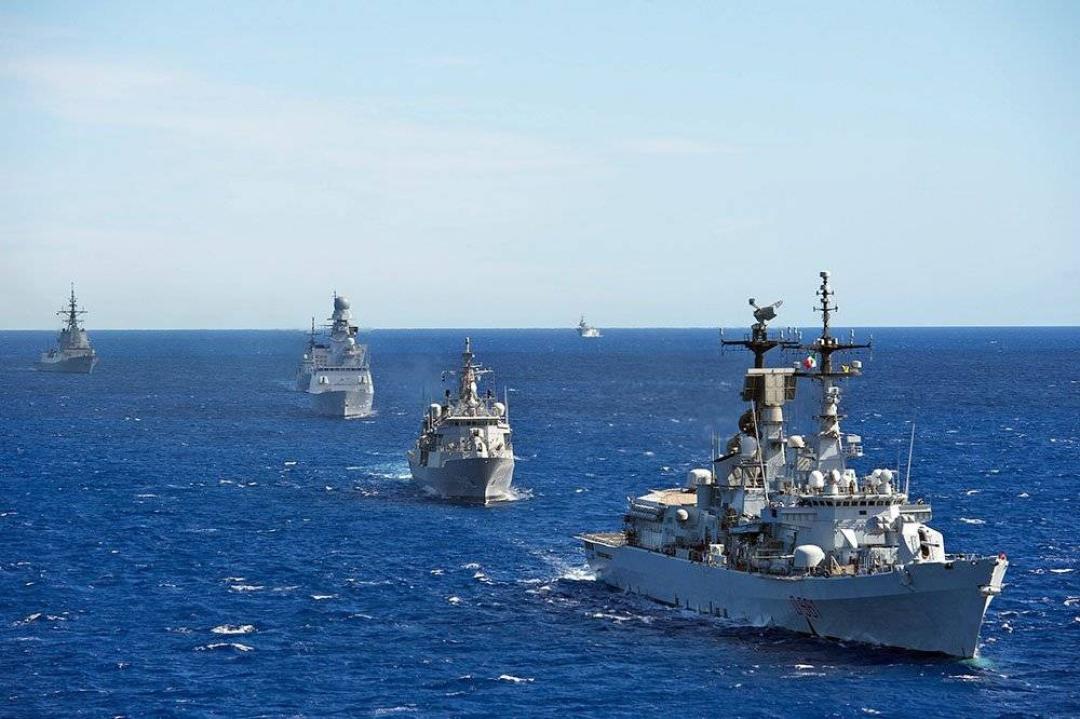
NATO, Georgia and the security of the Black Sea region

On April 3rd 2019, the 70th anniversary of the NATO Alliance took place in Brussels. Foreign ministers of the member states and the partner states discussed the contemporary challenges facing the alliance. The status of Georgia and Ukraine, as well as the security of the Black Sea region were one of its major topics.
Kay Bailey Hutchison, the United States permanent representative at NATO, highlighted the importance of the roles that Georgia and Ukraine play in upholding the security in the Black Sea region and guaranteed to make sure that all of the NATO countries that live around the Black Sea are also protected under [NATO’s] security umbrella”.
A special mention was given to NATO’s "Black Sea Initiative" which is aimed “at deterring Russia,” as well as to “stop the destabilization of the Ukraine”. She added that the Black Sea initiative considers air surveillance as well as sending more of NATO ships into the Black Sea “to ensure that there is a safe passage for Ukrainian vessels through the Kerch Straight, into the Sea of Azov”. Hutchison also stressed that in face off Russia’s imposing influence in the region, it is “very important” that Ukraine, Romania, Bulgaria, and Georgia “have their security in the Black Sea area guaranteed both for ships but also for their land-based safety”, reports civil.ge. According to the Montreux Treaty, which regulates the naval transit through the Bosphorus, the Dardanelles and the Marmara Sea; warships of the states which are not located on the shore of the Black Sea, can only be present in the Black Sea waters for a maximum duration of 21 days.
NATO’s Secretary General, Jens Stoltenberg, also referred to the security of the Black Sea saying that NATO has “increased its naval presence in the Black Sea, with NATO’s maritime groups taking part in exercises and also conducting several port visits” including the recent ones in Georgia and Ukraine. He concluded, that Russia needs ‘to respect the international law’ in order to make the waters of the Black Sea more secure.
On March 28th, the NATO-Georgia special commission was also holding a meeting. The importance of NATO’s Military Committee’s recent visit to Georgia and the NATO-Georgia joint exercises were highlighted as the main milestones of the cooperation. According to the evaluations of the meeting's participants, the active nature of NATO-Georgia relations points to Georgia’s high ranking on the Alliance’s political agenda. A special praise was given to Georgia’s progress on the implementation of NATO’s annual national programme for the country, the substantial NATO-Georgia package, as well as Georgia’s contribution to NATO-led peacekeeping missions.
Georgia’s minister of foreign affairs, David Salkaliani, was also present at the summit. Besides the discussion on the Black Sea security, Zalkaliani extensively emphasized the severe human rights situation in occupied Abkhazia and Tskhinvali, as well as the increasing number of illegal detentions and fatalities along the border as the main security challenges of Georgia.
He also added that Georgia is ‘’recognized as a frontrunner among other aspirant countries and today Georgia is absolutely different than it was ten years ago, which demonstrates the significant changes in its state institutions, in building a vibrant democratic society, in progressing towards a liberal market economy and a free media – all of this we see in the context of NATO integration” the minister said. Underlining that Georgia is developing a very close bilateral cooperation with the Alliance members, most importantly with the United States. “Relations with the United States are unprecedented. We are cooperating in the field of defense and security, which will strengthen the defense capabilities and sustainability of our armed forces,” Zalkaliani said. Besides the US, a very close cooperation with France and Germany was also being stressed. The minister of foreign affairs concluded that Georgia has ‘’all the practical tools needed to join the alliance’’.
See Also


Mirzoyan Meets US Deputy Assistant Secretary Joshua Huck

Azerbaijani President Holds Talks with UAE and German Business Delegations on Economic Cooperation

Grigoryan Confirms Armenia’s Readiness to Dissolve OSCE Minsk Group Upon Peace Treaty Signing

Azerbaijani Official Warns of Ecological Risks to Caspian Sea, Similar to Lake Urmia and Aral Sea

